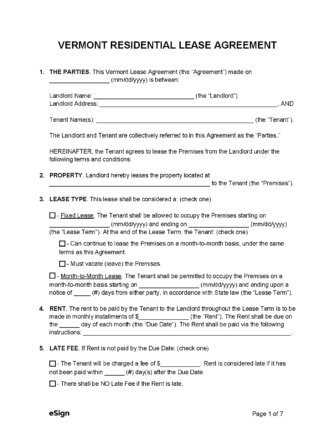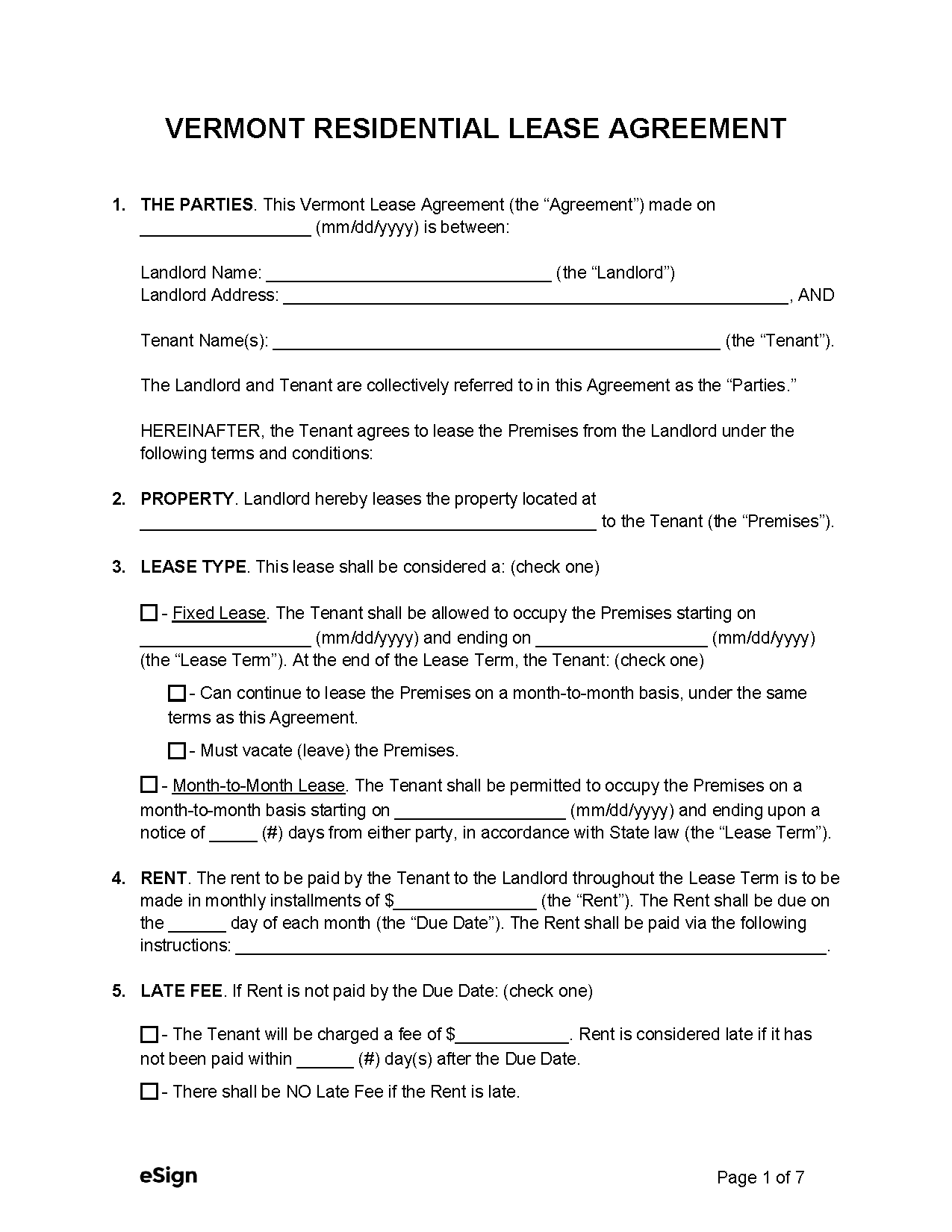Lease Agreements: By Type (6)
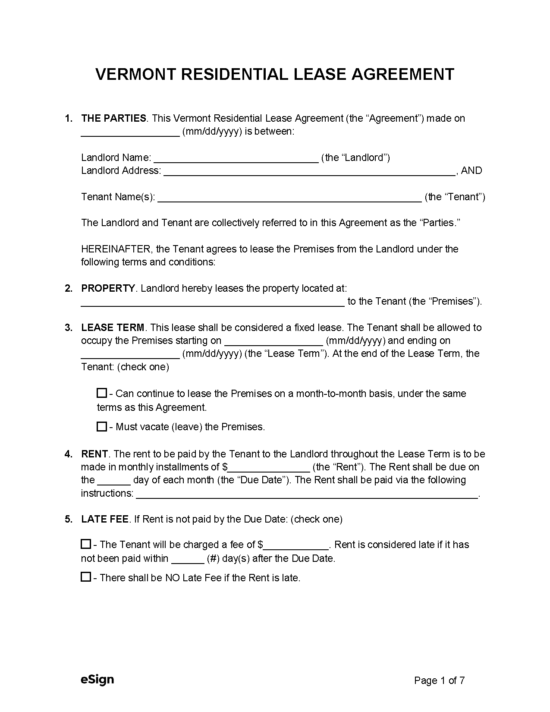 Standard (1-year) Lease Agreement – A rental contract that grants tenancy in abut lo residential dwelling for a fixed term of one year. Standard (1-year) Lease Agreement – A rental contract that grants tenancy in abut lo residential dwelling for a fixed term of one year.
Download: PDF, Word (.docx), OpenDocument |
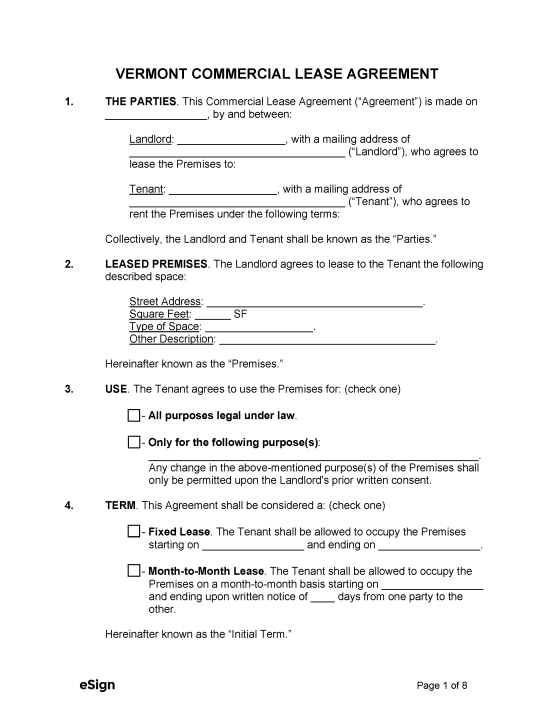 Commercial Lease Agreement – Designed to establish the rental conditions for a business entity that will occupy a commercial property. Commercial Lease Agreement – Designed to establish the rental conditions for a business entity that will occupy a commercial property.
Download: PDF, Word (.docx), OpenDocument |
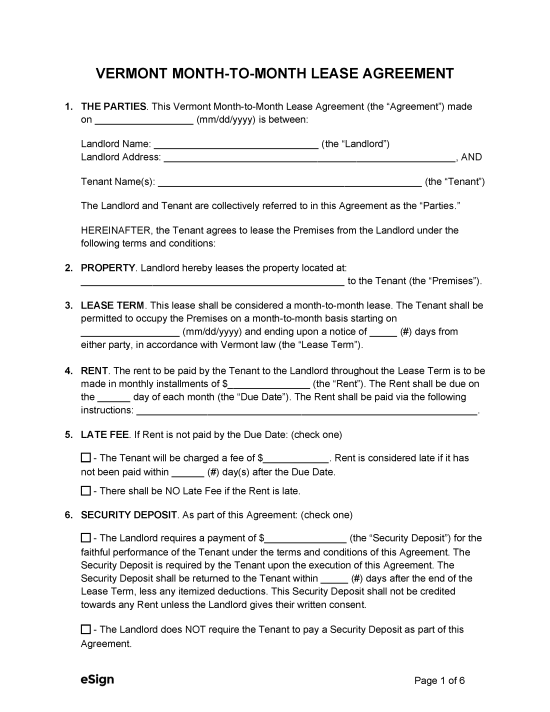 Month-to-Month Lease Agreement – A periodic rental arrangement that continues on a monthly basis until either party terminates the agreement. Month-to-Month Lease Agreement – A periodic rental arrangement that continues on a monthly basis until either party terminates the agreement.
Download: PDF, Word (.docx), OpenDocument |
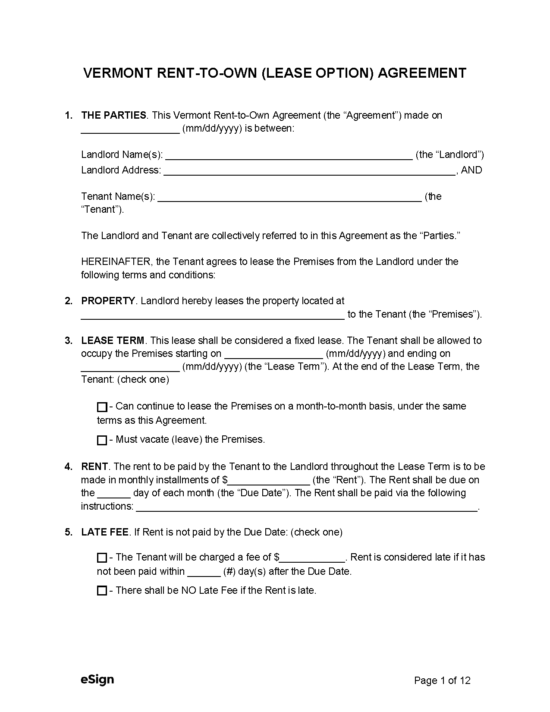 Rent-to-Own (Lease Option) – A fixed-term rental agreement that allows the tenant to purchase the leased property if certain contingencies are met. Rent-to-Own (Lease Option) – A fixed-term rental agreement that allows the tenant to purchase the leased property if certain contingencies are met.
Download: PDF, Word (.docx), OpenDocument |
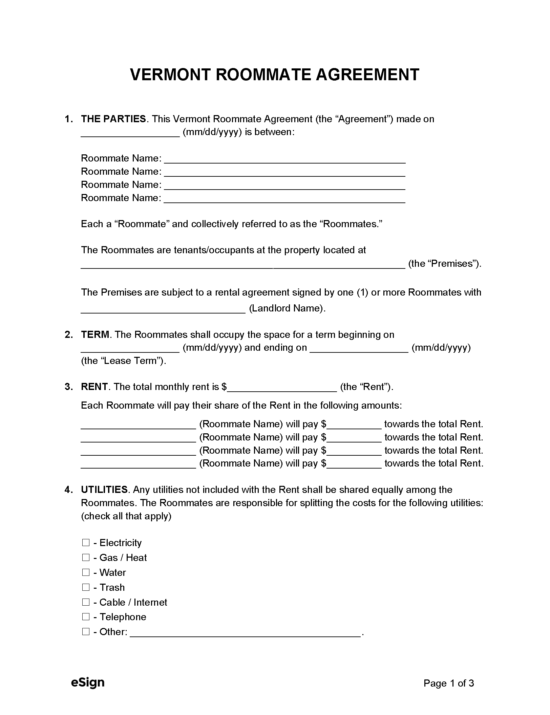 Roommate Agreement – Defines the living conditions for tenants occupying a shared residency. Roommate Agreement – Defines the living conditions for tenants occupying a shared residency.
Download: PDF, Word (.docx), OpenDocument |
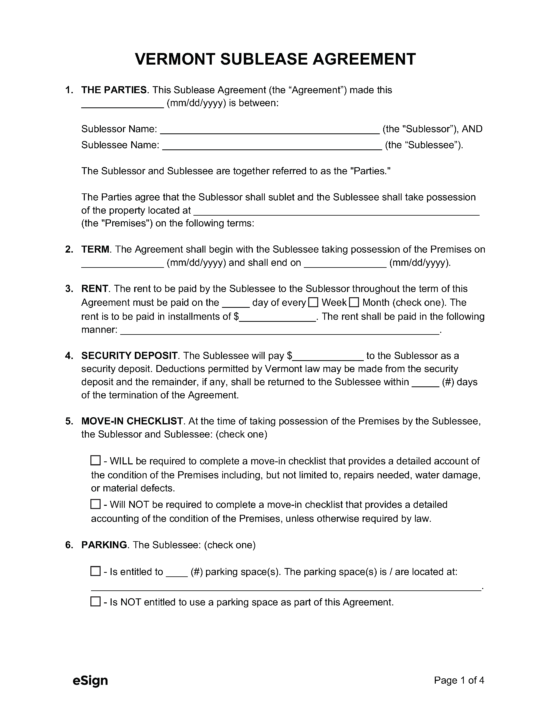 Sublease Agreement – Transfers a tenant’s rental rights to another party for either a temporary period or the remainder of the original lease term. Sublease Agreement – Transfers a tenant’s rental rights to another party for either a temporary period or the remainder of the original lease term.
Download: PDF, Word (.docx), OpenDocument |
Required Disclosures (1)
- Lead-Based Paint Disclosure (PDF) – To be completed by owners of property predating 1978 to disclose the possible contamination of lead-based paint.[1]
Security Deposits
Maximum Amount ($) – A security deposit amount limit is not mentioned in state statutes.
Collecting Interest – Vermont statutes don’t govern the collection of interest on security deposits, but there may be local regulations on this matter.[2]
Returning to Tenant – A tenant’s security deposit must be returned within 14 days of vacating the premises.[3]
- Exception: Landlords of seasonal rental property have up to 60 days to return tenants’ security deposits.
Itemized List Required? – Yes, if deductions were made to the security deposit to repair damages, the landlord must make a list of deductions and give it to the tenant.
Separate Bank Account? – No, there is nothing in state law requiring landlords to hold security deposits in a separate account.
Landlord’s Entry
General Access – Landlords may access a rental unit for general purposes if the tenant provides consent ahead of time.[4]
- Exception: The landlord can access the property without consent by providing 48 hours’ notice to perform any of the following duties[5]:
- Routine inspections
- Repairs, alterations, or improvements
- Show the property to prospective tenants or buyers, mortgages, workers, or contractors
Immediate Access – No consent or prior notice is required to enter the premises in emergency situations.[6]
Rent Payments
Grace Period – There is no grace period; rent must be paid on the due date agreed upon by the landlord and tenant.[7]
Maximum Late Fee ($) – Late fees aren’t mentioned in state statutes, but the Vermont Handbook for Tenants and Landlords states that if the lease allows it, the landlord can only charge the tenant for actual expenses caused by the late rent payment.
Bad Check (NSF) Fee – State statutes don’t mention how much a landlord can charge the tenant if their check bounces.
Withholding Rent – If a landlord doesn’t keep the property clean and safe for the tenant after they have been notified of any issue, the tenant may withhold rent, among other available actions.[8]
Breaking a Lease
Non-Payment of Rent – Failure to pay rent gives the landlord the right to serve a 14-day notice to pay or vacate the premises on the tenant.[9]
Non-Compliance – Not adhering to the terms of the lease can result in the landlord delivering a 30-day notice to quit, which may give the tenant the opportunity to remedy the situation.[10]
- Exception: Non-compliance due to illegal activity means the tenant’s lease is automatically terminated and they must leave the property once the landlord serves a 14-day notice to quit.[11]
Tenant Maintenance – Tenant is obligated to keep the property in good condition, refrain from disturbing the other tenants, and comply with all building, housing, and health regulations.[12]
Lockouts – Landlords are prohibited from denying tenants access to their rental unit or their personal property without a court order.[13]
Leaving Before the End Date – A tenant who abandons the rental property and stops paying rent is still liable for all rent due until the end of the lease.[14]
- Duty to Re-rent – The landlord doesn’t have a legal obligation to re-rent the property, but if they do find a new tenant, the start date of the new tenancy will mark the end of the previous tenant’s lease term.
Lease Termination
Month-to-Month – Landlords must give tenants 60 days’ notice to terminate a month-to-month tenancy if there is no written lease agreement.[15]
- Exception: If there is no written lease and the tenant has rented the property continuously for more than two years, the landlord must provide 90 days’ notice.[16]
Unclaimed Property – If a tenant has abandoned the rental unit, the landlord must hold their personal property, if any, for 60 days. If the tenant doesn’t claim their belongings and reimburse the landlord for costs incurred, the property belongs to the landlord.[17]
